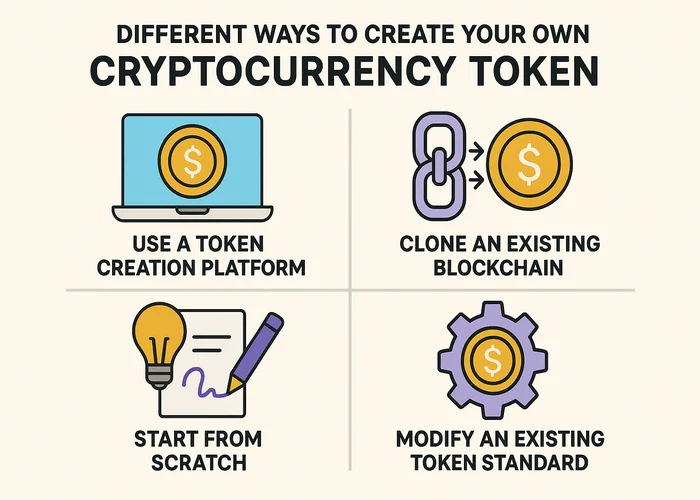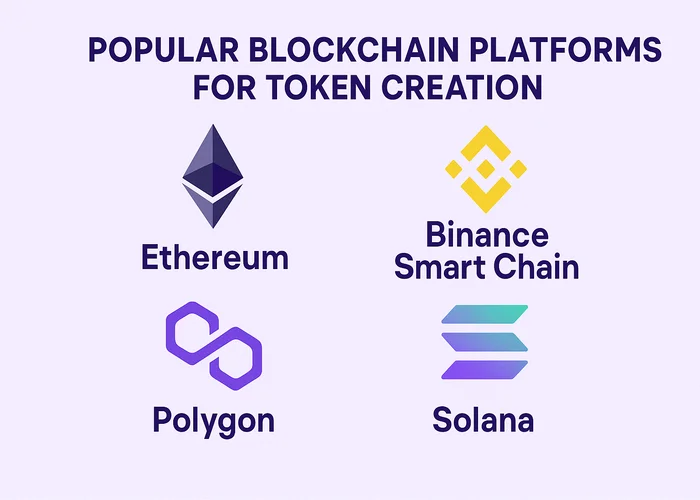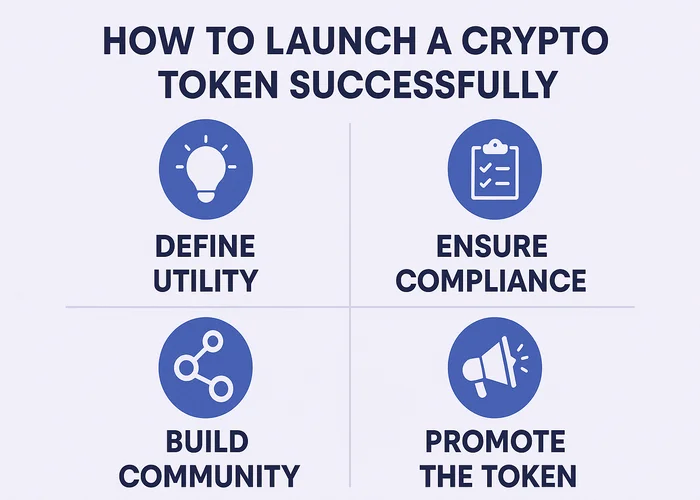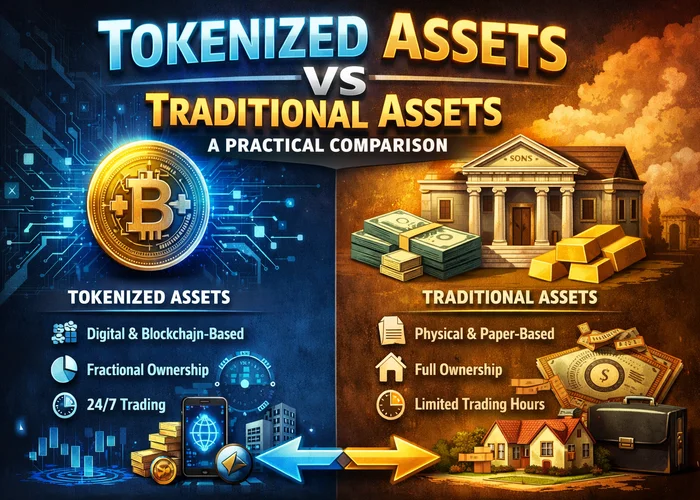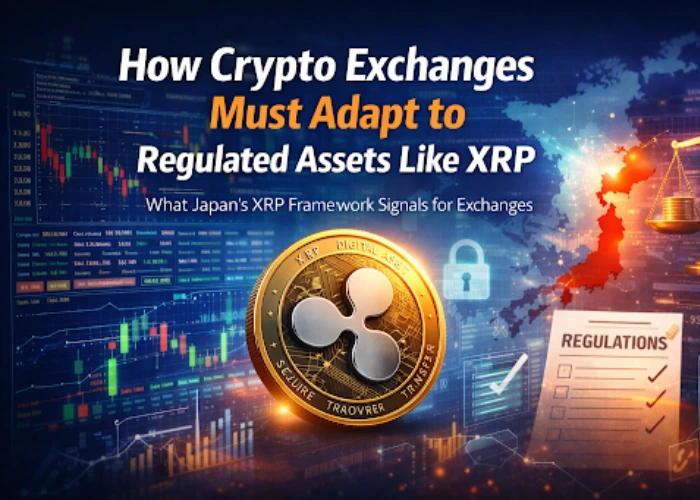Create your own cryptoucurrency token has raised its standards and also widden up its availability for everyone. You can create your own cryptocurrency token. But all you need to do is to learn the nooks and corners of the development process. Learning how to build a cryptocurrency opes the door for many global financial operations, innovations and fundraising opportunities.
But where to begin? Take what steps? How do legal obligations and technical complexity coexist? This detailed build your own crypto token guide addresses all your questions and tells you how to Create Your Own Cryptocurrency token.
Why Create Your Own Cryptocurrency?
Before Create Your Own Cryptocurrency token, you should know why so many firms and individuals develop their own cryptocurrency:
Fundraising and Crowdfunding – ICOs and token sales can gather funds without traditional investors.
Community Incentives – Reward tokens for user loyalty and participation.
Decentralized financial (DeFi) apps, NFTs, and gaming ecosystems can be enabled with unique business models.
Brand Visibility – A token establishes your brand as a digital economy innovator.
Set your own rules for supply, distribution, and usage without third-party platforms.
Different Ways to Create Your Own Cryptocurrency token
Create Your Own Cryptocurrency token can be easy or complex depending on your goals. Quick overview of popular options:
Token Creation on Existing Blockchain – The most common and cost-effective way. Ethereum (ERC20), Binance Smart Chain (BEP20), and Solana let you generate a crypto token without a blockchain.
Create Your Own Cryptocurrency token with a new blockchain for projects that need customized rules or consensus processes. Advanced technical skills, higher expenses, and long development durations. Companies that generate and Create Your Own Cryptocurrency token
Types of Tokens You Can Create
Utility Tokens
Security Tokens
Stablecoins
Governance Tokens
Non-fungible tokens
Popular Blockchain Platforms for Token Creation
ERC-20 tokens on Ethereum
Ethereum is the most common platform for token creation and also uses ERC-20. Cost To Create ERC20 token $50–$500. It depends on network congestion and gas pricing.
However, development and customisation charges might greatly raise the investment.
Smart contract development, security audits, and deployment assistance are offered by ERC20 token development companies. Professional services ensure your token fulfills industry and security standards.
BEP-20 Tokens: Binance Smart Chain
Binance Smart Chain is very popular because of the lower transaction cost and also has faster fee processing.
Most Cost to Create a BEP20 Token $1 to $20 to deploy. This cost makes BSC appealing to startups and small businesses.
BEP20 token development companies offer ERC-20-like capabilities on Binance Smart Chain at lower cost and enhanced performance. This will make you understand How Much Does It Cost To Create A Cryptocurrency.
Solana Blockchain
Step-by-Step Guide: How to Create Your Own Cryptocurrency
Before create Your Own Cryptocurrency token, understand how much does it cost to create your own crypto token.
Step 1: define your token’s use.
Define your token’s purpose, audience, and ecosystem benefit before Create Your Own Cryptocurrency token. What problems would your token solve? How would your token assist users? Why is your token valuable?
Step 2: Select Blockchain Platform
You have to choose the blockchain platforms which mostly come under your project, budget and also skills before Create Your Own Cryptocurrency token. Take into account transaction fees, development difficulty, ecosystem support, and audience preferences.
Step 3: Design Tokenomics
Tokenomics should include total supply, distribution strategy, inflation/deflation, and utility functions. Long-term success and adoption require well-designed tokenomics.
Step 4: Create Smart Contracts
How to establish a cryptocurrency involves smart contracts that define token behavior and functionality. You can write contracts in Solidity (Ethereum) or Rust (Solana) or hire a developer.
Step 5: Security Audit
Perform thorough security audits to find and repair issues. Audits cost $5,000–$50,000 but are necessary to retain user trust and avoid security breaches.
Step 6: Deploy token
Send your smart contract to the blockchain network to Create Your Own Cryptocurrency token. You must pay network fees and follow platform-specific deployment requirements.
7: List and Market
After deployment, offer your token on DEXs and do marketing to increase awareness and acceptance.
Working with Crypto Token Development Companies
For companies lacking blockchain experience, working with a crypto token development company has many benefits. Teams for professional development:
Technical Expertise: Experienced developers know blockchain, security, and optimization.
Compliance Knowledge: Development businesses maintain abreast of regulatory changes and can help your token comply.
After token launch, professional teams provide maintenance, upgrades, and technical support.
Time Efficiency: Experienced developers finish projects faster and avoid frequent mistakes that delay independent development.
Steps to Create Your Own Cryptocurrency token: Detailed Process
Here are some of the steps to create your own crypto token
Research and Planning
Understanding your competition, consumer, and regulatory environment requires rigorous market research. Create a whitepaper describing your project’s vision, technical specs, and business plan.
Phase of Technical Development
Develop smart contracts for your token’s core and additional functionalities. This phase comprises coding, testing, and optimization for performance and security.
Test and Validate
Perform rigorous test network testing before mainnet implementation. This phase finds flaws, security holes, and performance issues without investing money.
Launch/Deployment Phase
Launch your own cryptocurrency on the mainnet and start marketing. Exchange listings, community building, and adoption marketing are included.
How To Create Your Own Cryptocurrency For Business
Business Use Cases
Supply Chain Management:
Create Your Own Cryptocurrency and Make Money with the help of a cryptocurrency business. Tokens verify product authenticity and transparency.
Customer Loyalty Programs:
Use blockchain-based tokens instead of points for flexibility and transferability.
Custom tokens simplify B2B payments and lower transaction costs.
Sell tokens to raise funds while offering investors utility and profits.
Strategy for implementation
If you want to implement an effective business implementation that needs planning, security, regulatory compliance and user education.
How to Launch a Crypto Token Successfully?
If you want to launch a crypto token, it requires more than technical skills and support. Marketing, community building, and strategic alliances are needed for successful launches.
Pre-launch activities
You can promote your own community awareness with the help of social media. Content marketing and industry networking. To reach more people, partner with relevant businesses and influencers.
Strategy Launch
Coordinate your token launch using social media, press releases, and community gatherings. Consider offering early adoption incentives.
Growth After Launch
Focus on ecosystem growth, community engagement, and continual progress. Updates and new features keep the momentum and encourage long-term usage.
Security Best Practices
- During token creation, security should be a high focus. Use many security layers, including:
- Smart Contract Security: Follow security protocols and audits.
- Access Control: Use permissions and multi-signature for important functions.
- Monitoring Systems: Install tools to detect odd behavior or security threats.
- Update your systems regularly and address new issues swiftly.
Future Trends in Token Development
- The cryptocurrency market is constantly expanding, with new technology and standards. Follow developments in:
- Technologies that allow tokens to work across blockchain networks.
- CBDCs: Government-issued digital currencies that may affect private token ecosystems.
- Integration with lending, borrowing, and trading protocols.
- NFTs: Unique digital assets that may supplement fungible tokens.
Conclusion
Create Your Own Cryptocurrency token gives you the opportunity for innovation, business growth and also the growth of your digital economy engagement. Success takes time, planning and other technical skills and ongoing security along with compliance.
Whether you construct your own crypto token or collaborate with professional developers.
Creating a new token by yourself may seem complicated, but entrepreneurship and enterprises can do it easily. Creating a token needs more assistance and resources.
Define your goals, evaluate the costs, and choose the best development technique for your needs.
Token generation is just the kick start but the long-term success depends only on utility, community adoption and also project evolution to meet market needs and demands.
Your bitcoin token can become valuable in the rising digital market with dedication and strategy.



